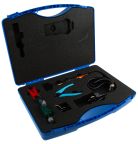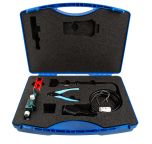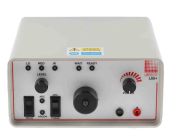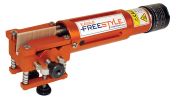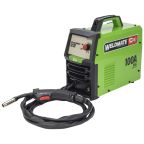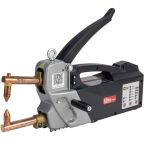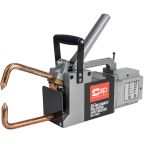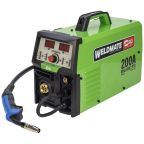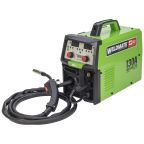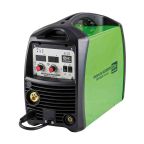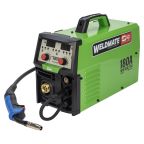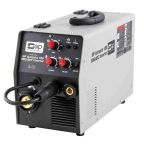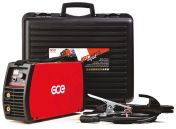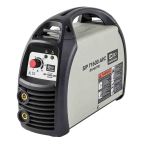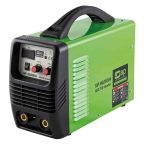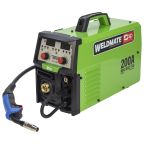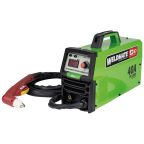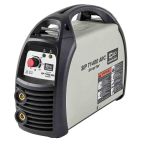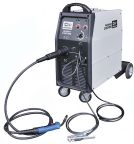- Automation & Control Gear
- Cables & Wires
- Enclosures & Server Racks
- Fuses & Circuit Breakers
- HVAC, Fans & Thermal Management
- Lighting
- Relays & Signal Conditioning
- Switches
- Batteries & Chargers
- Connectors
- Displays & Optoelectronics
- ESD Control, Cleanroom & PCB Prototyping
- Passive Components
- Power Supplies & Transformers
- Raspberry Pi, Arduino, ROCK, STEM Education & Development Tools
- Semiconductors
Welders
Welders are tools designed to join metals and other thermoplastic materials by uniting them together with the use of heat, pressure or both. Welding differentiates from soldering of blazing (low-temperature joining techniques) by melting base materials instead of bonding two materials with a solder.
What are the types of welding methods?
- Arc - This category includes a number of processes e.g, Metal Inert Gas (MIG), Tungsten Inert (TIG), Metal Active Gas (MAG), Flux Corded Arc Welding (FCAW), Gas Metal Arc Welding (GMAW), Submerged Arc Welding (SAW), Shielded Metal Arc Welding (SMAW) and Plasma Arc. All of the above techniques use electricity to create enough heat to melt metal; the melted metals, when cool, result in a binding of the metals. They usually use filler material and are primarily used for joining metals including stainless steel, aluminium, nickel and copper alloys, cobalt and titanium.
- Friction - This technique joins materials using mechanical friction. This can be performed in a variety of ways on different welding materials including steel, aluminium or even wood. The mechanical friction generates heat to soften the materials which then mix to create a bond as they cool. The manner in which the joining occurs is dependent on the exact process used, for example, friction stir welding (FSW), friction stir spot welding (FSSW), linear friction welding (LFW) and rotary friction welding (RFW).
- Electron Beam - This fusion joining process uses a beam of high-velocity electrons to join materials. The kinetic energy of the electrons transforms into heat upon impact with the workpieces, causing the materials to melt together. Electron beam welding (EBW) is performed in a vacuum (with the use of a vacuum chamber) to prevent the beam from dissipating.
- Laser - Used to join thermoplastics or pieces of metal, this process uses a laser to provide a concentrated heat ideal for barrow, deep welds and high joining rates. Being easily automated, the high welding speed at which this process can be performed makes it perfect for high volume applications, such as within the automotive industry.
- Resistance - This is a fast process commonly used in the automotive industry. This process can be split into two types, resistance spot welding and resistance seam welding.
